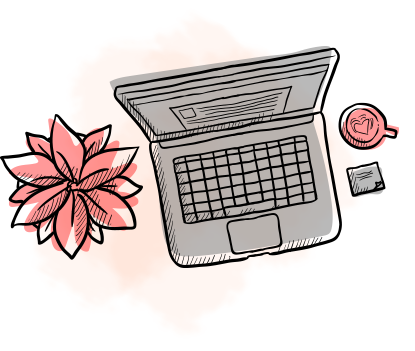Part 2
What is copyright?
What is copyright exactly and how do you obtain it?
We’ve already discussed the concept of intellectual rights—the ownership you automatically have in something creative that has come out of your brain.
To take it a step further, it’s important you understand the difference between intellectual rights and copyright.

While intellectual rights are inherent–automatically endowed upon you when you create something–copyright is (usually) an endorsement from a governing body.
Most countries have their own laws and regulations regarding copyright, so be sure to check with your local and national government for complete details on how copyright works under your country’s law.
Many aspects of copyright law have been standardized internationally, though. Take, for example, the Berne Copyright Convention. If your creative work is protected in your own country, it will also be protected within any country that has signed the Berne Copyright Convention–a good por- tion of the developed world.
How to obtain copyright
One common misconception about copyright law is that you have to file for a legal permission to copyright your creative work.
In the United States, government regulation used to require official registration of creative work with the government with an accompanying copyright symbol, or claim to copyright in written form.
When the Berne Copyright Convention was signed in 1989, such regulations were dissolved and notices of copyright are now optional.
So what does that mean for you?
It means you choose if you want to put the copyright symbol © on your creative work or not.
Disregarding it does not mean you forfeit your legal ownership of the creative work. It’s still yours.
You have automatic copyright in anything you create. No need to register. No need to display the © symbol. It's 100% yours .But any attorney or legal advisor will likely encourage you to use it wherever possible since you are more likely to win in a court battle if you’ve notified the copyright violator of your copyright ownership.
But it's important to remember this: the second you put pen to paper, push record, or draw your first shape in Photoshop, you own copyright to that creation.
You own everything you create without having to file for government recognition. And you’re protected from creative thievery automatically.
The default status of your creative work? Copyrighted. You can release the work for public use, transfer it to someone else, or sell it. But, by default, it's all yours.